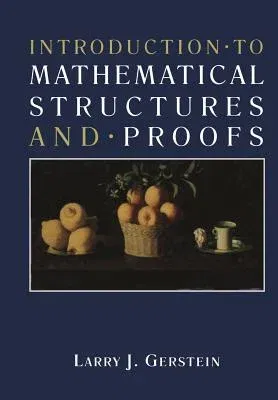Larry Gerstein
(Author)Introduction - To Mathematical Structures and - Proofs (Softcover Reprint of the Original 1st 1996)Paperback - Softcover Reprint of the Original 1st 1996, 27 December 2012

Qty
1
Turbo
Ships in 2 - 3 days
In Stock
Free Delivery
Cash on Delivery
15 Days
Free Returns
Secure Checkout
Part of Series
Textbooks in Mathematical Sciences
Print Length
350 pages
Language
English
Publisher
Springer
Date Published
27 Dec 2012
ISBN-10
1468467107
ISBN-13
9781468467109
Description
Product Details
Author:
Book Edition:
Softcover Reprint of the Original 1st 1996
Book Format:
Paperback
Country of Origin:
NL
Date Published:
27 December 2012
Dimensions:
24.41 x
16.99 x
1.91 cm
ISBN-10:
1468467107
ISBN-13:
9781468467109
Language:
English
Location:
New York, NY
Pages:
350
Publisher:
Weight:
580.6 gm

